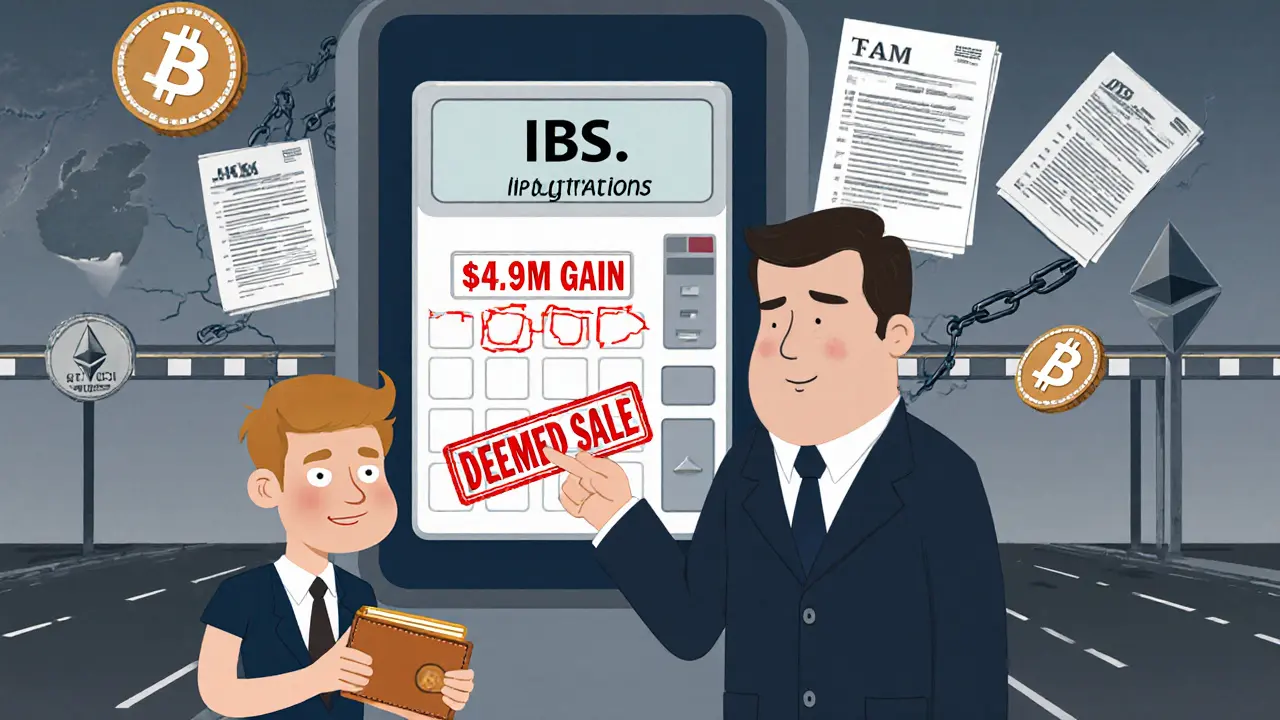Crypto Exit Tax: What It Is, Where It Applies, and How It Hits Your Wallet
When you sell, swap, or spend crypto, some governments don’t wait for you to cash out—they take a cut right then and there. This is the crypto exit tax, a mandatory fee charged on cryptocurrency transactions regardless of profit. Also known as a transaction tax or capital gains levy, it’s not about whether you made money—it’s about the fact that you moved coins at all. Unlike traditional income tax, this one hits every trade like a toll booth: buy Bitcoin? Pay. Swap ETH for SOL? Pay. Use USDT to buy an NFT? Still pay.
This isn’t theoretical. In India, a 1% TDS (Tax Deducted at Source) automatically pulls money from every crypto trade, whether you’re flipping a token for $10 or selling a bag for $10,000. Vietnam, starting in 2026, will charge 0.1% on every single transaction, no exceptions. These aren’t annual filings or year-end reports—they’re real-time deductions built into exchanges and wallets. You don’t get a choice. The system takes it before you even see the balance.
What makes this different from capital gains tax? Simple: you don’t need to prove a profit. Even if you trade BTC for ETH and the value stays flat, you still pay. If you use crypto to buy coffee, you pay. If you send crypto to a friend, you pay. It turns every transaction into a taxable event. This pushes traders toward fewer swaps, longer holds, or—especially in places like Tunisia or Nigeria—into underground P2P networks where no one reports anything. But even there, the shadow of regulation looms.
Why do governments do this? Because crypto moves fast and leaves no paper trail. By taxing at the point of transaction, they capture revenue before it vanishes into DeFi, mixers, or offshore wallets. It’s not about fairness—it’s about control. And as more countries follow India and Vietnam’s lead, the cost of trading crypto is quietly rising—not through headlines, but through tiny, automatic deductions you might not even notice until your balance feels lighter.
What you’ll find below isn’t a list of opinions. It’s a collection of real cases: countries that slapped on the tax, platforms that had to adapt, and traders who found ways around it. Some posts expose scams pretending to be tax tools. Others break down how a 0.1% fee adds up over 100 trades. One even shows how a ban in Tunisia led to cash deals in alleyways—because when the system takes too much, people find another way.

Exit Tax on Crypto Assets for US Expatriates: What You Need to Know in 2025
The U.S. exit tax applies to crypto assets when you renounce citizenship. Learn how the IRS calculates your tax bill, what triggers it, and how to legally reduce or avoid it in 2025.
© 2026. All rights reserved.